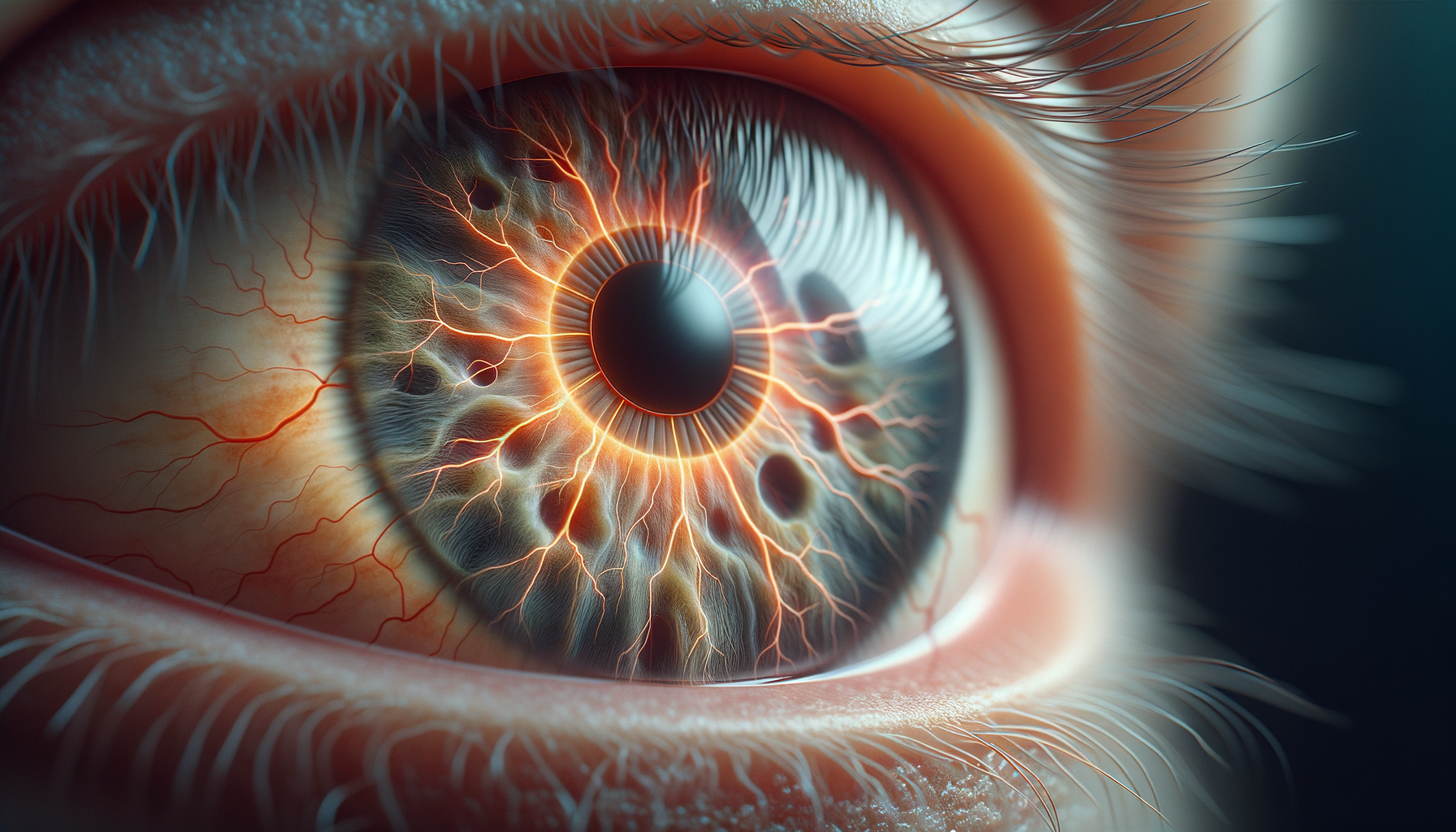Understanding Macular Degeneration
Macular degeneration is a common eye disorder that primarily affects older adults, leading to a gradual loss of vision. It occurs when the macula, a small central part of the retina, deteriorates. This condition is a leading cause of vision impairment among individuals over 50. Understanding its nature is essential as it helps in early detection and management. The macula is responsible for central vision, which is crucial for activities like reading, driving, and recognizing faces. When it degenerates, these tasks become increasingly difficult.
There are two primary types of macular degeneration: dry and wet. Dry macular degeneration is the more common form, accounting for about 80-90% of cases. It involves the thinning of the macula and the presence of drusen, which are yellow deposits. Wet macular degeneration, although less common, is more severe and involves the growth of abnormal blood vessels under the retina, leading to leakage and scarring. Understanding these types helps in recognizing symptoms and seeking appropriate treatment.
Early signs of macular degeneration can include blurred vision, difficulty adapting to low light, and the need for brighter light when reading or doing close work. Recognizing these symptoms early can prevent further deterioration and preserve vision. Regular eye examinations are crucial, especially for those with a family history of the condition.
Risk Factors and Prevention
Several risk factors contribute to the development of macular degeneration. Age is the most significant, with the risk increasing as one grows older. Genetics also play a crucial role; individuals with a family history of the condition are more likely to develop it. Lifestyle factors such as smoking, obesity, and poor diet further increase the risk. Smoking, in particular, is a major risk factor, doubling the likelihood of developing macular degeneration.
Preventive measures can significantly reduce the risk of macular degeneration. Maintaining a healthy diet rich in leafy greens, fruits, and fish high in omega-3 fatty acids is beneficial. These foods contain antioxidants that help protect the eyes from damage. Regular exercise and maintaining a healthy weight also contribute to eye health. Additionally, protecting the eyes from harmful UV rays by wearing sunglasses can prevent further damage.
Quitting smoking is one of the most impactful preventive measures. Not only does it reduce the risk of macular degeneration, but it also improves overall health. Regular eye check-ups are essential for early detection and prevention. These check-ups can identify changes in the retina before significant vision loss occurs.
Diagnosis and Treatment Options
Diagnosing macular degeneration involves a comprehensive eye examination. An eye care professional will conduct various tests, including a visual acuity test, dilated eye exam, and imaging tests like optical coherence tomography (OCT). These tests help in assessing the condition of the retina and identifying any abnormalities.
Treatment options for macular degeneration vary depending on the type and severity of the condition. For dry macular degeneration, there is no cure, but certain lifestyle changes and nutritional supplements can slow its progression. These supplements typically include a combination of vitamins C and E, zinc, copper, and beta-carotene.
Wet macular degeneration has more treatment options, including anti-VEGF injections, which reduce the growth of abnormal blood vessels, and photodynamic therapy, which involves using a light-sensitive drug to destroy these vessels. Laser surgery is another option, although it is less common due to the risk of damaging surrounding tissues. Early detection and treatment are crucial in preserving vision and preventing severe vision loss.
Living with Macular Degeneration
Living with macular degeneration can be challenging, but many strategies and resources can help individuals manage the condition. Low vision aids, such as magnifying glasses, large-print materials, and special computer software, can assist in daily tasks. These tools can significantly improve the quality of life for those with vision impairment.
Support groups and counseling services provide emotional and psychological support, helping individuals cope with the changes in their vision. These groups offer a platform to share experiences and learn from others facing similar challenges. Occupational therapy can also be beneficial, teaching new ways to perform daily tasks and maintain independence.
Staying informed about the condition and its progression is essential. Regular follow-ups with an eye care professional will ensure that any changes are monitored and managed promptly. Engaging in activities that stimulate the mind, such as reading and puzzles, can also help maintain cognitive function and improve overall well-being.
Research and Future Developments
Research into macular degeneration is ongoing, with scientists exploring new treatments and potential cures. Advances in genetics have led to a better understanding of the disease, paving the way for targeted therapies. Gene therapy is one area of research that shows promise, aiming to correct genetic defects that contribute to the condition.
Stem cell therapy is another exciting development, with the potential to regenerate damaged retinal cells and restore vision. Clinical trials are underway to assess the safety and efficacy of these treatments. While still in the experimental stage, these therapies offer hope for future breakthroughs in managing macular degeneration.
Technological advancements are also contributing to better management of the condition. Innovative devices and apps are being developed to assist those with vision impairment, enhancing their ability to navigate daily life. As research progresses, the outlook for individuals with macular degeneration continues to improve, offering hope for better treatment options and quality of life in the future.




Leave a Reply